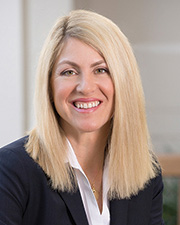
Mohr Partners
With declining enrollment and surging costs, our expensive public schools need to better deliver value to the region, and especially the students. Commercial property owners and their real estate tax paying tenants are lifting heavily. In Boston, real estate taxes comprise nearly 75% of the total city budget, and commercial property taxes, including those paid by apartment buildings, are about $1.4 billion, or nearly half of total property taxes paid. That figure is very close to the $1.3 billion budget for the Boston Public Schools which comes to about $25,000 for each of the 51,000 students. This significant figure, near the top in the state, does not include some school-related capital, healthcare, and pension expenditures located elsewhere in the city budget.
The purpose of public education is in part to deliver a top-flight workforce to regional businesses, and also to develop citizens who will take our global business hub city to the next level. On both fronts we can do much better. Closed schools significantly impacted Massachusetts standardized test results. Of our third through eight graders, MCAS scores showed only 46% of students were proficient in English, and 33% in math. These results likely overstate the true picture due to a greater than usual number of families opting their students out of testing in the spring of 2021. Boston Public Schools are some of the best funded in the state. Students deserve an outcome consistent with the public investment.
It’s critical to our region that there is not a fraying of support for our vital public schools. As a community, though, we must also acknowledge that tax payers – especially commercial real estate taxpayers in closed urban cores – have been treated shabbily during the pandemic. The pandemic through mid-year 2021 exacted almost 6 million s/f of negative absorption in the Boston CBD office market. Negative absorption in 2020 was at levels never before seen, and office vacancy currently stands at about 16%. Assists from the life sciences sector through office-to-life-science conversions have helped, and the CBD economy is showing signs of life as we look toward 2022. Still, real estate taxes have grown, reaching nearly 50% of building expenses in some cases. Very significant business operating risks remain, especially as the sugar-high of forgivable PPP loans is replaced with the cold reality of EIDL and other loans which require repayment. As a community we need to focus on the health of our CBD office sector. One way to do this is to provide a property tax holiday for buildings with serious pandemic-induced vacancy. Another way is to focus at all levels of our society on providing good value for the real estate tax dollars paid. There is no better way to deliver that value than to ensure the public schools are providing the region’s precious youth with a top-notch workplace ready education that enables each student to live a thriving self-directed life.
Valerie Pontiff, CRE, CCIM, MAI is the managing partner of the Boston office of real estate brokerage and advisory firm Mohr Partners, Inc. and the 2021-2022 chair of the New England Chapter of the Counselors of Real Estate.








